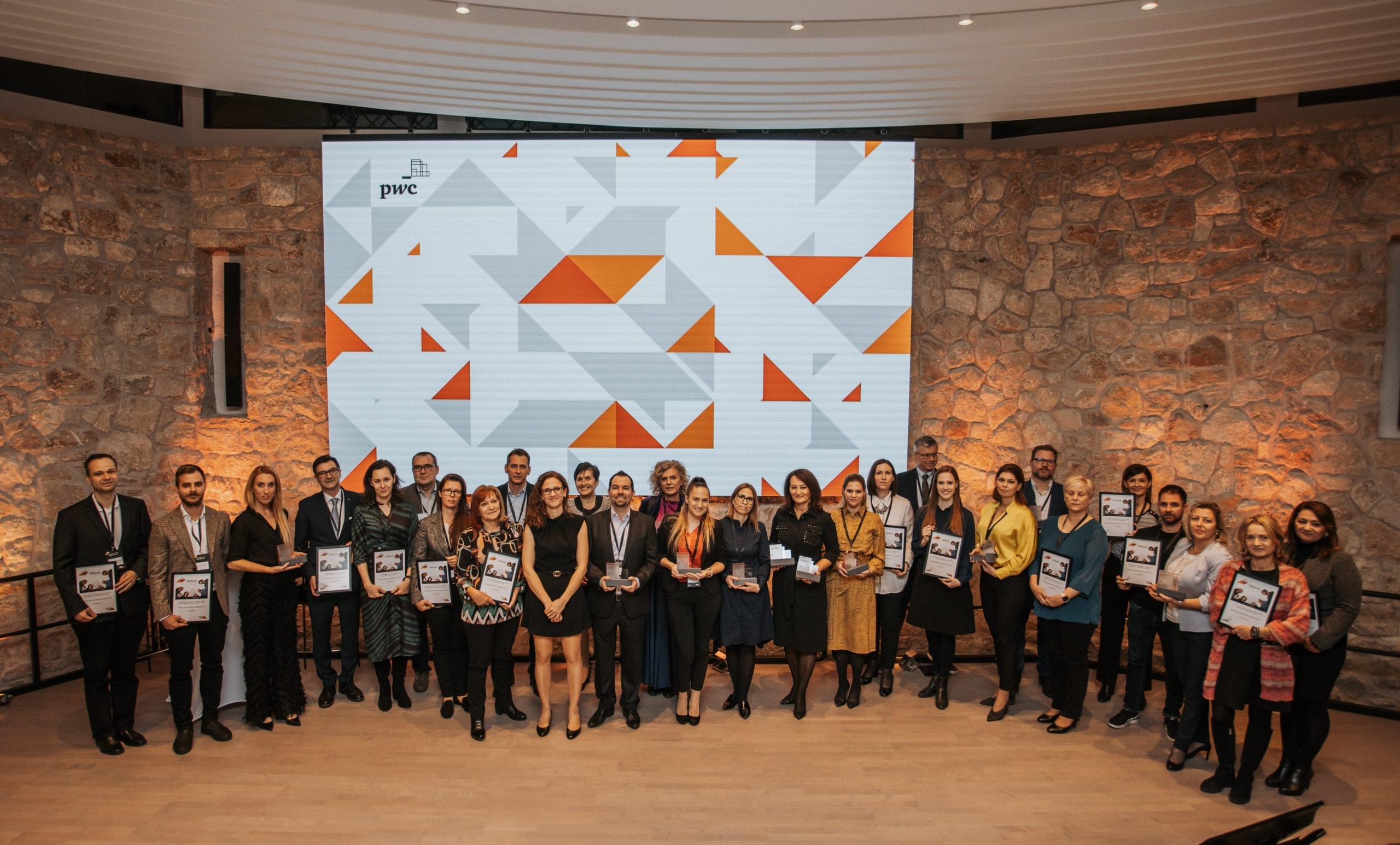PwC: Employees want financial security and stability
Global economic events have increased the importance of financial security, stability, and long-term career prospects for employees. Although base salary remains the most important factor, growing insecurity has changed job preferences: career prospects and overtime pay have overtaken flexible working hours and a predictable work schedule in job seekers’ list of priorities. This year, PwC Hungary has surveyed the job preferences of young and experienced employees in Hungary for the sixth time.

Winners
Workplace: a safe spot in an uncertain environment
According to PwC Hungary’s survey of nearly 25,000 respondents, in an ever-changing and uncertain geopolitical and economic environment, key employee preferences have changed significantly compared to previous years. Financial security has become more important than work-life balance or meeting social needs. Employees increasingly expect their employers to provide this, both from a financial and career perspective.
In line with this, items related to well-being have declined compared to the year before. Although the possibility to work from home and human factors such as good relations with colleagues and superiors are still essential, a secure and stable workplace is now more important.
For young workers, physical presence is more important than flexible working hours
Examining the responses of university students and high-school students in grades 11-12, it is clear that students perceive their work and career as a lesser part of their identity, and the employer-employee relationship as more transactional. Base salary remains the highest preference, followed by overtime pay and career opportunities. They also have less preference for working from home, which also shows their need to separate work from their personal life.
“For younger workers, employers should pay particular attention to developing workplace relationships and employee engagement, failing which the transactional approach can easily be detrimental to retention. The results also show that young workers have much lower expectations of the ratio of home office – this could be due to fatigue induced by online learning in higher education, or that they prefer on-the-job training in person,”
said Márta Reguly, head of PwC’s HR Consulting team.
The four-day working week is still a distant dream
This year’s survey also asked employees about new topics such as the introduction of a four-day working week. While the idea itself is very popular and there are ongoing experiments to introduce it in Hungary, the survey shows that when considered in conjunction with other compensation elements, it is not a high priority for employees. One reason for this may be that in the current economic climate, it is considered less of a realistic option.
What can employers do?
The survey also showed that environmental factors and the so-called VUCA (Volatile, Uncertain, Complex, Ambiguous) world have a strong stressful effect on employees, which may have lessened their flexibility, openness, and social expectations. According to PwC Hungary’s HR specialist, increased attention needs to be paid to supporting employees during this period in order to lay the foundations for the company’s resumed growth in a more favourable economic environment.
“Employees look to their employers for the stability and security they lack in their daily lives. This comes at a time when the economic environment is presenting companies with significant challenges. It is important for company leaders to address these needs in their communication, maintaining transparency and informing employees about the company’s situation and possibilities. In addition to employee expectations, it is also crucial to pay attention to future-proofing the company, through leadership development, maintaining flexibility and the capacity to innovate. These are the values that can give companies a significant competitive advantage once the crisis is over, depending on how much of these values they retain in these years,” said Márta Reguly.
PwC’s Most Attractive Employer 2022 Award industry category winners
PwC’s Most Attractive Employer 2022 Awards were given in ten industry categories and one overall category, based on responses received from participants.
Automotive manufacturers
- Audi Hungaria
- Mercedes-Benz
- BMW
Manufacturing
- Bosch Group
- LEGO
- Siemens
Retail
- Lidl Magyarország
- Aldi Magyarország
- IKEA
Energy and public utilities
- MOL Magyarország
- MVM Group
- E.ON
Pharma
- Richter Gedeon
- Egis
- Roche
Shared services centres
- bp Hungary
- GE
- Diageo
FMCG
- Coca-Cola
- Nestlé
- Procter & Gamble
Financial service providers
- OTP Bank
- Morgan Stanley
- Magyar Nemzeti Bank
Technology
- Microsoft Magyarország
- Samsung
- IBM
Telecommunications and media
- Magyar Telekom
- RTL Magyarország
- Vodafone
Overall
- Audi Hungaria
- Bosch Group
- Mercedes-Benz
PWC
Related news
God bless you, kitchen table: Hungarians are twice as likely to eat dinner in bed as the rest of the world
🎧 Hallgasd a cikket: Lejátszás Szünet Folytatás Leállítás Nyelv: Auto…
Read more >Veganuary inspires millions of people in the UK
🎧 Hallgasd a cikket: Lejátszás Szünet Folytatás Leállítás Nyelv: Auto…
Read more >Related news
Festival buzz at the 60th anniversary EuroShop trade fair
🎧 Hallgasd a cikket: Lejátszás Szünet Folytatás Leállítás Nyelv: Auto…
Read more >Historic price reduction at ALDI
🎧 Hallgasd a cikket: Lejátszás Szünet Folytatás Leállítás Nyelv: Auto…
Read more >







